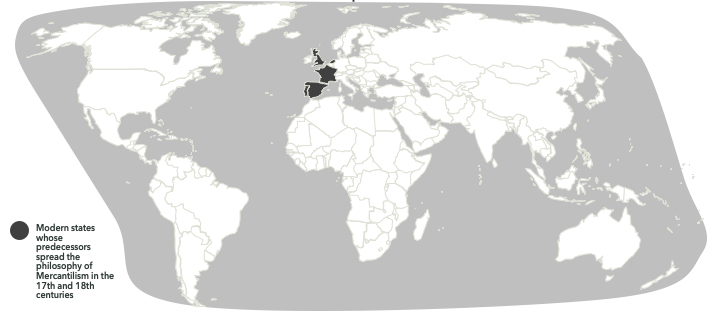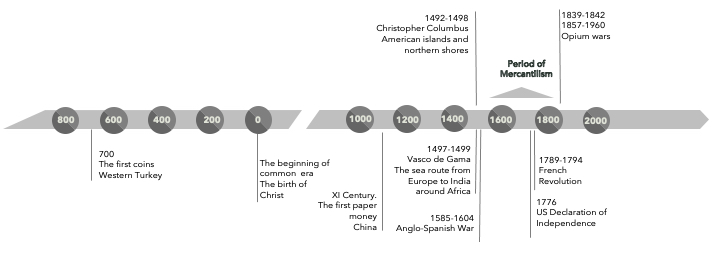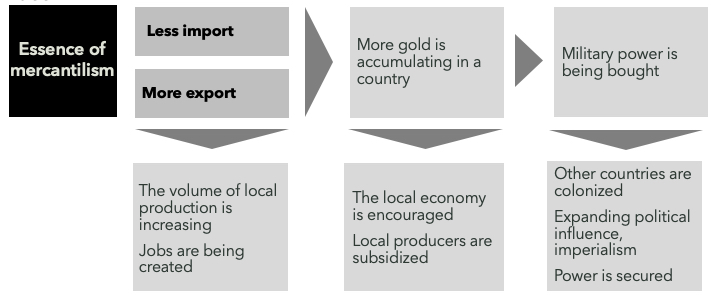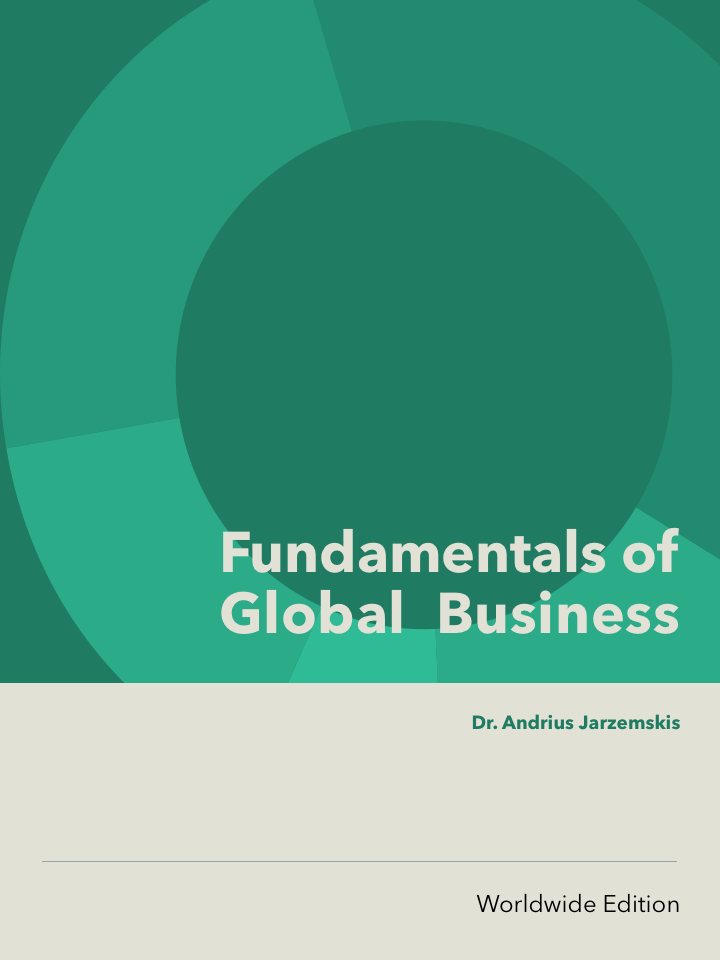Sept 2022. Updated Merkantilism 2
The subchapter is currently updated. New interesting information was included. Go to new version of the chapter.…
Ex. 1‑1 The spread of mercantilism in the 17-18 centuries among the colonial maritime states of Europe

Keywords: Netherlands, France, Spain, Portugal, United Kingdom
Ex. 1‑2 The mercantilist period in the context of other significant events

Keywords: Mercantilism, Columbus, Vasco de Gama, US declaration of independence, Anglo-Spanish War
Ex. 1‑3 The essence of mercantilism

Keywords: Imperialism, mercantilism, export, gold, import
Share or comment this information on your social media:

A.1 Theories of international economics
The author has been teaching at several universities since 2005. 40+ scientific publications, 10+ international research projects. More about author.